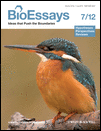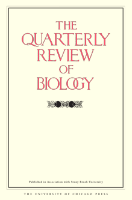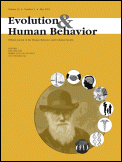
ANNALS OF HUMAN BIOLOGY
Scope & Guideline
Illuminating the Pathways of Human Health and Disease
Introduction
Aims and Scopes
- Human Biological Variation:
Research focusing on the genetic, phenotypic, and environmental variations among human populations, examining how these variations influence health, adaptation, and social dynamics. - Anthropological Genetics:
Studies that delve into the genetics of human populations, including the analysis of genetic markers, ancestry, and the implications of genetic diversity for understanding human evolution. - Health and Disease in Human Populations:
Exploration of the relationships between biological factors and health outcomes, emphasizing the role of genetics, environment, and lifestyle in disease prevalence and management. - Evolutionary Biology:
Investigations into the evolutionary processes that have shaped human biology, including the study of evolutionary adaptations and their implications for current human biology. - Biodemography:
Research that integrates biological and demographic data to understand population dynamics, lifespan, and mortality patterns in human populations.
Trending and Emerging
- Integrative Health Approaches:
An increase in research focusing on integrative health, which combines biological, psychological, and social factors to better understand health and disease, reflecting a shift towards more comprehensive health models. - Genomic Studies and Precision Medicine:
The rise of genomic research, including studies on how genetic information can inform personalized medicine and public health strategies, is becoming a dominant theme in the journal. - Impact of Climate Change on Human Biology:
Growing concern about the effects of climate change on human health and biology is leading to more studies that examine how environmental changes affect human populations. - Microbiome Research:
Increased interest in the human microbiome and its influence on health, disease, and human biology is emerging as a significant focus area, reflecting broader trends in biomedical research. - Socioeconomic Determinants of Health:
Research exploring how socioeconomic factors influence biological outcomes and health disparities is gaining prominence, indicating a shift toward understanding the socio-environmental context of human biology.
Declining or Waning
- Traditional Anthropometry:
The practice of using basic anthropometric measurements (like height and weight) has waned as more advanced imaging and genetic analysis techniques have become available, leading to a reduced emphasis on these traditional methods. - Single-Dimensional Health Metrics:
Research focusing solely on single health indicators, such as BMI, has decreased as there is a growing recognition of the need for a more holistic approach that considers multiple factors influencing health outcomes. - Cultural Anthropology in Isolation:
Studies that separate biological research from cultural anthropology have become less common, as interdisciplinary approaches that combine biological and cultural perspectives are now favored.
Similar Journals

AMERICAN JOURNAL OF HUMAN BIOLOGY
Illuminating the Complexities of Human BiologyAmerican Journal of Human Biology (ISSN: 1042-0533, E-ISSN: 1520-6300) is a well-respected publication in the field of human biology, published by Wiley. Since its inception in 1989, the journal has provided a critical platform for advancing human biological research, featuring articles that encompass a wide range of interdisciplinary topics including anatomy, anthropology, ecology, evolution, and genetics. It has consistently achieved high impact, reflected in its prestigious quartile rankings such as Q1 in anthropology and Q2 in anatomy for 2023. With its robust Scopus rankings, notably ranking #10 in medicine - anatomy, the journal serves not only researchers but also professionals and students aiming to keep abreast of the latest developments in human biology. While the journal currently does not offer open access, it remains a vital resource for those committed to understanding human biological realities and challenges in an evolving global landscape. Its insightful contributions are indispensable in promoting scholarly dialogue and advancing knowledge across multiple relevant fields.

BIOESSAYS
Transforming Discoveries into Academic DialogueBIOESSAYS, published by WILEY, is a leading academic journal dedicated to the dynamic fields of biochemistry, genetics, and molecular biology. With an impressive impact factor and recognized as a Q1 journal in its category for 2023, it ranks 49 out of 221 in the Scopus database, placing it within the 78th percentile among its peers. Since its inception in 1984, BIOESSAYS has served as a vital platform for researchers, professionals, and students, facilitating the dissemination of pivotal findings, innovative theories, and review articles that shape the current understanding of biological sciences. Although it does not offer open access, the journal remains key for those seeking to stay at the forefront of scientific discovery and discussion within this ever-evolving discipline. With its commitment to high-quality, peer-reviewed content, BIOESSAYS continues to influence future research directions and academic discourse.

Journal of Physiological Anthropology
Advancing Understanding of Biological Variation in Diverse EnvironmentsThe Journal of Physiological Anthropology, published by BMC, serves as a leading platform in the field of anthropological science with a strong focus on the physiological aspects of human adaptation and performance. Since its establishment in 2006, this open access journal has gained recognition for its contributions to understanding human biological variation through an interdisciplinary lens, enabling researchers and practitioners in fields such as anthropology, orthopedics, and public health to disseminate and access high-quality research. With an impressive impact factor and a classification in the Q1 quartile for Anthropology (2023), the journal holds a prominent position, ranked #29 in Social Sciences and #76 in Orthopedics and Sports Medicine according to Scopus. The journal's objectives include fostering innovative research and promoting discussions that advance knowledge on human performance, adaptation, and health in diverse environments. As a vital resource based in the United Kingdom and available freely since 2012, it opens avenues for collaboration and knowledge exchange among researchers, professionals, and students alike.

HUMAN GENETICS
Connecting laboratory discoveries with clinical applications.HUMAN GENETICS, published by SPRINGER, stands as a cornerstone journal in the field of genetics, offering a wealth of research insights since its inception in 1964. Hailing from Germany, this esteemed journal boasts an impressive Q1 ranking in both Genetics and Clinical Genetics, marking it among the top quartile of journals in these categories for 2023. With a notable Scopus rank of #7 in Clinical Genetics and a percentile ranking of 93, HUMAN GENETICS attracts significant attention from researchers and professionals dedicated to advancing our understanding of genetic influences on human health and disease. Although it does not currently offer Open Access options, the journal provides a critical platform for scholarly communication, aimed at disseminating groundbreaking findings in genetics and biotechnology. As the field evolves, HUMAN GENETICS continues to play an instrumental role in bridging the gap between laboratory research and clinical application, making it an essential resource for students and seasoned researchers alike.

QUARTERLY REVIEW OF BIOLOGY
Cultivating Excellence in Biological ScholarshipQUARTERLY REVIEW OF BIOLOGY, published by University of Chicago Press, stands as a premier journal dedicated to the dissemination of high-quality research and review articles in the field of biological sciences. With an impressive impact factor and an esteemed ranking of Q1 in the Agricultural and Biological Sciences category, the journal is a vital resource for researchers, professionals, and students aiming to stay at the forefront of biological research and developments. Since its inception in 1945, the journal has evolved to cover a broad scope of topics, fostering interdisciplinary dialogue and providing critical insights that promote scientific advancement. Although currently not an open access journal, its reputation is underscored by a remarkable standing in the 95th percentile across Scopus rankings within its field. Located in Chicago, Illinois, this journal continues to be a cornerstone for scholarly communication in biology, making valuable contributions to both academia and practical applications in the biological sciences.

EVOLUTION AND HUMAN BEHAVIOR
Advancing Insights into the Evolutionary Roots of BehaviorEVOLUTION AND HUMAN BEHAVIOR, published by Elsevier Science Inc, is a leading interdisciplinary journal that explores the intricate relationships between evolutionary processes, human behavior, and cognition. With an impressive impact factor reflecting its rigorous peer-reviewed content and high citation rates, this journal falls in the prestigious Q1 quartile across multiple categories including Arts and Humanities, Ecology, Evolution, Behavior and Systematics, and Experimental and Cognitive Psychology, solidifying its critical role in advancing research in these fields. Since its inception in 1997 and moving towards 2024, it has consistently provided a platform for innovative research and insights, attracting contributions from a diverse range of disciplines. The journal is accessible through various open access options, ensuring that groundbreaking research is widely disseminated for maximum impact. Researchers, professionals, and students alike benefit from the cutting-edge studies published within, making EVOLUTION AND HUMAN BEHAVIOR an essential resource for those looking to deepen their understanding of the evolutionary context of human actions and interactions.

AMERICAN JOURNAL OF PHYSICAL ANTHROPOLOGY
Pioneering Research on Human VariationAMERICAN JOURNAL OF PHYSICAL ANTHROPOLOGY, published by Wiley, has established itself as a leading platform in the field of physical anthropology since its inception in 1918. This esteemed journal, identifiable by its ISSN 0002-9483 and E-ISSN 1096-8644, has been instrumental in disseminating groundbreaking research, achieving impressive rankings in both Social Sciences (Rank #18/443, 96th percentile) and Medicine (Rank #9/44, 80th percentile) categories within Scopus. Although its coverage in Scopus has concluded as of 2021, the journal continues to be a vital resource for academics and professionals seeking to explore the biological aspects of human evolution and variation. With a commitment to high-quality, peer-reviewed publications, the journal supports open access to enhance the visibility and accessibility of anthropological research globally. Researchers, students, and professionals are encouraged to engage with the innovative findings published in this journal, contributing to the ongoing dialogue in physical anthropology.

Genes and Nutrition
Bridging Genetics and Nutrition for Better HealthGenes and Nutrition is a prominent open access journal published by BMC in the United Kingdom, dedicated to advancing knowledge at the intersection of nutrition, genetics, and human health. With the aim of making cutting-edge research available to a global audience, the journal has been a vital platform for sharing discoveries since its inception in 2007, and it continues to thrive with a convergence period extending to 2024. Recognized for its high-quality contributions, Genes and Nutrition is rated in the Q2 category within both Endocrinology, Diabetes, and Metabolism and Genetics as of 2023, reflecting its esteemed position in these fields (Scopus Ranks leaderboard places it at #72/244 and #109/347, respectively). This journal is an invaluable resource for researchers, professionals, and students alike, fostering collaboration and innovation in the understanding of how genetic factors influence nutrition and health outcomes. Accessible to all since 2016, it encourages dialogue and discovery, positioning itself as a leader in genetic and nutritional science.

ANTHROPOLOGISCHER ANZEIGER
Fostering Dialogue Between Humans and EcosystemsANTHROPOLOGISCHER ANZEIGER, published by E Schweizerbart'sche Verlagsbuchhandlung, is a distinguished journal dedicated to the interdisciplinary fields of anthropology, animal science, and ecology, with a notable impact on advancing research in these areas. Since its inception in 1971, the journal has played a critical role in providing a platform for innovative research, fostering scholarly exchange, and enhancing the understanding of human and animal interactions and ecosystems. With its current quartile rankings—Q2 in Anthropology and Q3 in Animal Science and Zoology—it is well-positioned to serve as a vital resource for researchers, professionals, and students alike. Although it does not currently offer open access, the journal remains an essential asset for those looking to deepen their knowledge and contribute to ongoing discussions within these intersecting disciplines. For additional information, visit the publisher's office located at NAEGELE U OBERMILLER, SCIENCE PUBLISHERS, JOHANNESSTRASSE 3A, D 70176 STUTTGART, GERMANY.

YEAST
Unveiling the potential of yeast in biotechnology and beyond.YEAST is a renowned peer-reviewed journal published by WILEY, dedicated to advancing the understanding of yeast biology and its applications in various scientific fields. Since its inception in 1985, YEAST has significantly contributed to the disciplines of microbiology, biotechnology, biochemistry, and genetics, achieving respectable rankings within its categories, including Q2 status in Applied Microbiology and Biotechnology and Q2 in Biotechnology as of 2023. With an emphasis on high-quality research, it explores diverse aspects of yeast organisms, from their cellular mechanisms to biotechnological applications. Although it does not currently offer an open-access option, the journal provides valuable insights and findings that are applicable to both academia and industry, making it an essential resource for researchers, professionals, and students interested in the functional and applied dimensions of yeast. With its editorial rigor and commitment to quality, YEAST continues to be a vital platform for disseminating innovative research that shapes future biotechnological advancements.